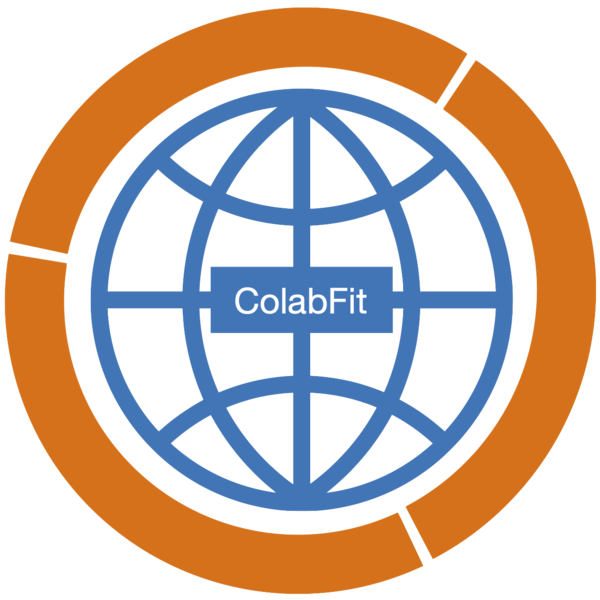Dataset
PWMLFF_feature_comparison_NPJ2023
Species content of dataset
Dataset viewer powered by Hugging Face
| Name | PWMLFF_feature_comparison_NPJ2023 |
|---|---|
| Extended ID | PWMLFF_feature_comparison_NPJ2023__Han-Li-Liu-Li-Wang__DS_cgjdk1e2txjy_0 |
| Description | Partial dataset for "Accuracy evaluation of different machine learning force field features". The included data is limited to that hosted directly on the repository at the related GitHub link. From publication abstract: Predicting energies and forces using machine learning force field (MLFF) depends on accurate descriptions (features) of chemical environment. Despite the numerous features proposed, there is a lack of controlled comparison among them for their universality and accuracy. In this work, we compared several commonly used feature types for their ability to describe physical systems. These different feature types include cosine feature, Gaussian feature, moment tensor potential (MTP) feature, spectral neighbor analysis potential feature, simplified smooth deep potential with Chebyshev polynomials feature and Gaussian polynomials feature, and atomic cluster expansion feature. We evaluated the training root mean square error (RMSE) for the atomic group energy, total energy, and force using linear regression model regarding to the density functional theory results. We applied these MLFF models to an amorphous sulfur system and carbon systems, and the fitting results show that MTP feature can yield the smallest RMSE results compared with other feature types for either sulfur system or carbon system in the disordered atomic configurations. Moreover, as an extending test of other systems, the MTP feature combined with linear regression model can also reproduce similar quantities along the ab initio molecular dynamics trajectory as represented by Cu systems. Our results are helpful in selecting the proper features for the MLFF development. |
| Authors |
Ting Han Jie Li Liping Liu Fengyu Li Lin-Wang Wang |
| DOI |
10.60732/209e0c9c
https://commons.datacite.org/doi.org/10.60732/209e0c9c https://doi.datacite.org/dois/10.60732%2F209e0c9c https://doi.org/10.60732/209e0c9c Cite as: Han, T., Li, J., Liu, L., Li, F., and Wang, L. "PWMLFF feature comparison NPJ2023." ColabFit, 2024. https://doi.org/10.60732/209e0c9c. For other citation formats, see the DataCite Fabrica page for this dataset. |
| Calculated Property Types |
atomic_forces cauchy_stress energy |
| Elements |
C (13.83%)
H (2.72%) Mg (15.29%) Ni (35.93%) O (0.16%) Si (32.06%) |
| Number of Configurations | 17,255 |
| Number of Atoms | 918,240 |
| Publication Link | https://www.doi.org/10.1088/1367-2630/acf2bb |
| Data Source Link | https://github.com/LonxunQuantum/PWMLFF_library/tree/main |
| Configuration Sets by Name | |
| Configuration Sets by ID | |
| ColabFit ID | DS_cgjdk1e2txjy_0 |
| Downloads | 12 |
| Files | colabfitspec.json |
No uploaded content is transferred in ownership from the original creators to ColabFit. All content is distributed under the license specified by its contributor who has stated that he or she has the authority to share it under the specified license.
